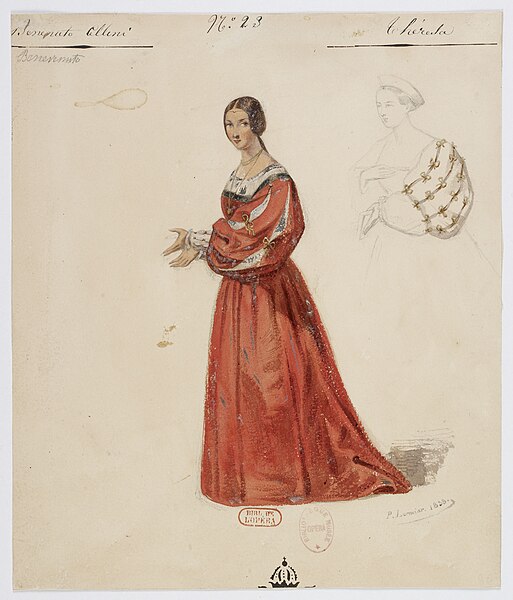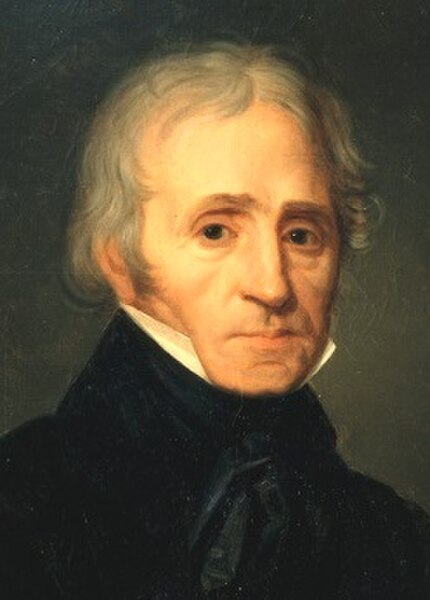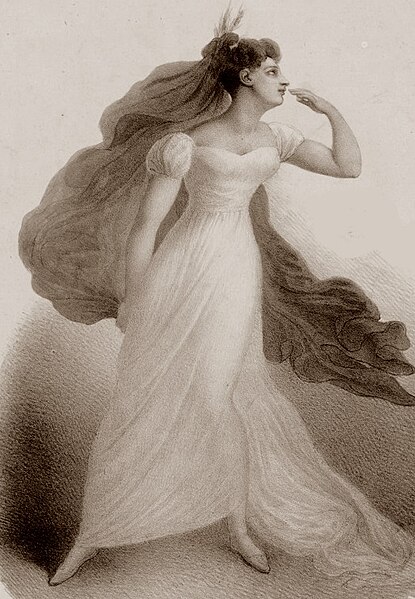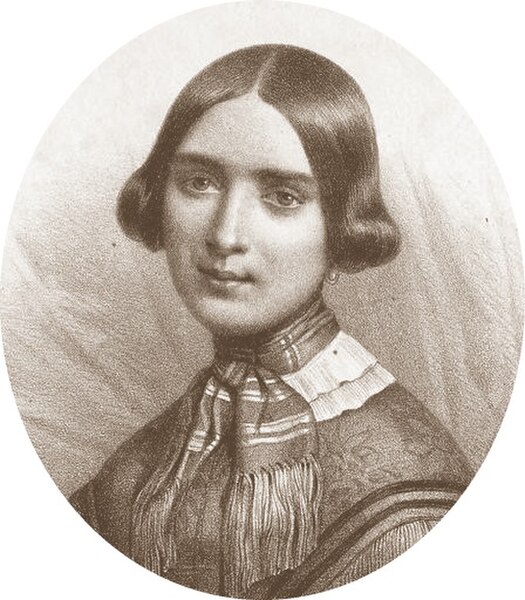Benvenuto Cellini (opera)
Benvenuto Cellini is an opera semiseria in four tableaux by Hector Berlioz, his first full-length work for the stage. Premiered at the Académie Royale de Musique on 10 September 1838, it is a setting of a libretto by Léon de Wailly and Henri Auguste Barbier, who invented most of the plot inspired by the memoirs of the Florentine sculptor Benvenuto Cellini. The opera is technically challenging and was until the 21st century rarely performed. But its overture sometimes features in orchestral concerts, as does the concert overture Le carnaval romain which Berlioz composed from material in the opera.
Poster for the premiere
Cellini (Duprez)
Teresa (Dorus-Gras)
Balducci (Dérivis)
Louis-Hector Berlioz was a French Romantic composer and conductor. His output includes orchestral works such as the Symphonie fantastique and Harold in Italy, choral pieces including the Requiem and L'Enfance du Christ, his three operas Benvenuto Cellini, Les Troyens and Béatrice et Bénédict, and works of hybrid genres such as the "dramatic symphony" Roméo et Juliette and the "dramatic legend" La Damnation de Faust.
Louis Berlioz, the composer's father c. 1840
The Opéra, in the Rue le Peletier, Paris, c. 1821
Harriet Smithson as Ophelia
Marie ("Camille") Moke, later Pleyel








